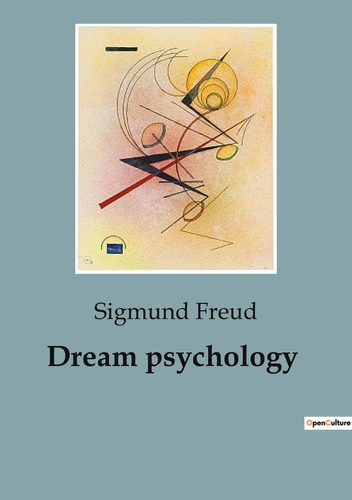Né le 6 mai 1856 en Autriche et mort le 23 septembre 1939 à Londres, nous connaissons Sigmund Freud pour ses nombreux travaux sur la psychanalyse. Après un diplôme de médecine en 1881, il porte un grand intérêt à la neurologie. En 1885, il étudie à Paris en compagnie du professeur Jean-Martin Charcot, célèbre neurologue français. Intrigué par l'hystérie, son premier cas, à son retour à Vienne, est celui d'une jeune femme : Annah O. C'est cette patiente qui donnera à Freud l'occasion de découvrir les bases de sa pensée : la sexualité et le refoulement. En 1897, il débute ses travaux sur les rêves, le fantasme et le célèbre complexe d'œdipe. En 1920, il met à jour les trois instances de l'appareil psychique : le ça, le moi et le surmoi caractérisant chaque individu. Opposé à la pensée de Carl Gustav Jung, il forme des disciples tout au long de sa vie. Encore aujourd'hui, ses œuvres dont Le Malaise dans la civilisation et Introduction à la psychanalyse sont caractérisées comme des ouvrages fondateurs de la discipline psychanalytique. Apprenez-en plus sur ce sujet passionnant et plongez dans les tréfonds de nos âmes. Parmi les auteurs contemporains fascinés par la psychologie humaine ou s'inspirant de la pensée freudienne, nous vous conseillons Boris Cyrulnik avec Sauve-toi, la vie t'appelle ou Michel Onfray et Traité d'athéologie - Physique de la métaphysique. Disponible en plusieurs formats, profitez de notre garantie satisfait ou remboursé pour vous précipiter dans ces lectures captivantes.
Dream psychology
Par :Formats :
- Paiement en ligne :
- Livraison à domicile ou en point Mondial Relay indisponible
- Retrait Click and Collect en magasin gratuit
- Nombre de pages88
- PrésentationBroché
- Poids0.127 kg
- Dimensions14,8 cm × 21,0 cm × 0,5 cm
- ISBN979-10-418-2152-5
- EAN9791041821525
- Date de parution17/10/2023
- ÉditeurCulturea
Résumé
"Dream Psychology" is a work by the Austrian neurologist and founder of psychoanalysis, Sigmund Freud. In this book, originally published in 1920 under the title "Traumdeutung" in German, Freud delves into the interpretation and analysis of dreams. This work is considered one of Freud's most significant contributions to the field of psychology. Freud argues that dreams are a window into the unconscious mind, providing valuable insights into an individual's hidden desires, fears, and unresolved conflicts.
He explores the symbolism and meaning behind dream content, and he introduces the idea of dream censorship, which he believes is responsible for the distortion of dream material. Freud's "Dream Psychology" is a fundamental text in the understanding of dreams and the role they play in the human psyche. It serves as the foundation for the broader field of dream analysis and is a cornerstone of psychoanalytic theory.
In summary, "Dream Psychology" by Sigmund Freud is a seminal work that explores the interpretation and analysis of dreams as a means of understanding the human unconscious. Freud's insights into the symbolism and hidden meanings within dreams have had a profound impact on the field of psychology and continue to be influential in the study of the mind.
He explores the symbolism and meaning behind dream content, and he introduces the idea of dream censorship, which he believes is responsible for the distortion of dream material. Freud's "Dream Psychology" is a fundamental text in the understanding of dreams and the role they play in the human psyche. It serves as the foundation for the broader field of dream analysis and is a cornerstone of psychoanalytic theory.
In summary, "Dream Psychology" by Sigmund Freud is a seminal work that explores the interpretation and analysis of dreams as a means of understanding the human unconscious. Freud's insights into the symbolism and hidden meanings within dreams have had a profound impact on the field of psychology and continue to be influential in the study of the mind.
"Dream Psychology" is a work by the Austrian neurologist and founder of psychoanalysis, Sigmund Freud. In this book, originally published in 1920 under the title "Traumdeutung" in German, Freud delves into the interpretation and analysis of dreams. This work is considered one of Freud's most significant contributions to the field of psychology. Freud argues that dreams are a window into the unconscious mind, providing valuable insights into an individual's hidden desires, fears, and unresolved conflicts.
He explores the symbolism and meaning behind dream content, and he introduces the idea of dream censorship, which he believes is responsible for the distortion of dream material. Freud's "Dream Psychology" is a fundamental text in the understanding of dreams and the role they play in the human psyche. It serves as the foundation for the broader field of dream analysis and is a cornerstone of psychoanalytic theory.
In summary, "Dream Psychology" by Sigmund Freud is a seminal work that explores the interpretation and analysis of dreams as a means of understanding the human unconscious. Freud's insights into the symbolism and hidden meanings within dreams have had a profound impact on the field of psychology and continue to be influential in the study of the mind.
He explores the symbolism and meaning behind dream content, and he introduces the idea of dream censorship, which he believes is responsible for the distortion of dream material. Freud's "Dream Psychology" is a fundamental text in the understanding of dreams and the role they play in the human psyche. It serves as the foundation for the broader field of dream analysis and is a cornerstone of psychoanalytic theory.
In summary, "Dream Psychology" by Sigmund Freud is a seminal work that explores the interpretation and analysis of dreams as a means of understanding the human unconscious. Freud's insights into the symbolism and hidden meanings within dreams have had a profound impact on the field of psychology and continue to be influential in the study of the mind.





















